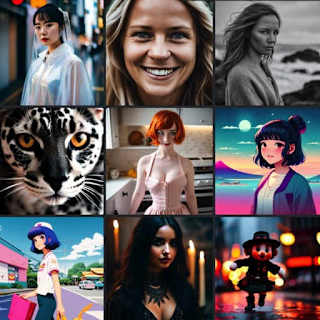OpenArt, a San Francisco-based AI startup founded by former Google employees, launched its highly anticipated "one-click story" feature on July 15, 2025, sparking widespread attention for its ability to generate viral "brain rot" videos in seconds. The tool, which allows users to transform simple text prompts, scripts, or even songs into complete one-minute videos with story arcs, has already begun flooding social media platforms with AI-generated content that mimics the hypnotic, meme-laden clips dominating TikTok and YouTube Shorts.

Democratizing Viral Content Creation
The platform's one-click story feature offers three distinct templates: Character Vlog, Music Video, and Explainer. Users can upload character images and prompts to create narrative vlogs, analyze song lyrics to produce matching animations, or transform educational content into engaging visual stories. The system aggregates over 50 AI models, including DALL-E 3, GPT, and Stable Diffusion, to automate everything from scriptwriting to video editing.
CEO Coco Mao told TechCrunch that the feature addresses a critical challenge in AI video generation: character consistency. "A problem that a lot of AI couldn't really handle well is to have the character consistent in the same video," Mao explained. "If you don't have the same character, then it's hard to get immersed in the story".
Explosive Growth Amid Ethical Concerns
OpenArt has experienced remarkable growth, reaching approximately 3 million monthly active users and generating an estimated $12 million in annual recurring revenue. The company operates on a credit-based subscription model, with plans ranging from $14 to $56 per month. Having raised $5 million from Basis Set Ventures and DCM Ventures, OpenArt projects annual revenue exceeding $20 million.
However, the platform faces significant ethical challenges regarding intellectual property infringement. During testing, researchers discovered that the Character Vlog feature could generate content featuring protected characters like Pikachu, SpongeBob, and Super Mario. While OpenArt's models are programmed to reject such inputs by default, CEO Mao acknowledged that "sometimes it slips".
Industry Context and Future Implications
The launch comes amid broader concerns about AI-generated content quality and copyright violations. In June 2025, Disney and Universal sued AI image generator Midjourney over alleged unauthorized use of copyrighted characters. Legal experts warn that users creating videos with infringing content could face liability under copyright law.
OpenArt plans to expand the one-click feature to support multi-character interactions and is developing a mobile application. The company is also reportedly open to licensing discussions with major intellectual property holders to address copyright concerns.
As AI-powered content creation tools become more accessible, OpenArt's innovation represents both the democratization of video production and the emerging challenges of maintaining quality and legality in an increasingly automated creative landscape.
SaiGon Times
Post a Comment